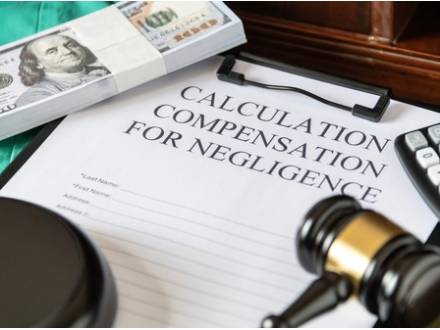The Differences Between Negligence and Negligence Per Se in Illinois Personal Injury Cases
 Every personal injury claim must be able to prove the theory of negligence in order to qualify for recovery of damages. This can often become an arduous task on many levels. One of the primary tenets of negligence is that the defendant had a duty to act in a "reasonable" manner. The reasonable person standard is a legal concept used to determine whether a hypothetical person faced with similar circumstances as the defendant would have acted the same or differently.
Every personal injury claim must be able to prove the theory of negligence in order to qualify for recovery of damages. This can often become an arduous task on many levels. One of the primary tenets of negligence is that the defendant had a duty to act in a "reasonable" manner. The reasonable person standard is a legal concept used to determine whether a hypothetical person faced with similar circumstances as the defendant would have acted the same or differently.
The negligence duty of care standard is a given in many circumstances, although in some cases, it must be definitively shown. Certain professionals, including healthcare professionals, may be held to a higher standard of care under specific circumstances for medical malpractice. As it relates to auto accidents, all drivers have a duty of care to follow traffic laws and rules to ensure the safety of others.
When an accident occurs, the question becomes whether it is reasonable to assume that another driver, given similar circumstances, would have acted in the same way as the defendant. In some instances, the law provides for a shorter avenue to recovery, known as negligence per se, which is explained more fully below.
If you have been injured through no fault of your own and you want to file a personal injury claim to recover damages, you need a strong legal professional advocating on your behalf. It can be beneficial to speak to a knowledgeable Lombard, IL personal injury lawyer from Mevorah & Giglio Law Offices.
What Must Be Shown to Prove Negligence Following an Accident?
The standard for proving negligence includes the following:
-
The defendant owed the plaintiff a duty of care.
-
The duty of care was breached by the defendant through an act or omission.
-
The breach of duty of care resulted in injuries.
-
Those injuries created damages in the form of medical expenses, lost wages, and pain and suffering.
The third element of negligence is often the most difficult to prove as there must be a direct link between the defendant’s action or inaction and the injuries you suffered. In an auto accident where the defendant was driving thirty miles over the speed limit, ran a stop light, and t-boned another driver, proving causation would be straightforward.
However, if one shopper tracked snow into a grocery store and another shopper slipped on that snow, fell, and sustained injuries, proving the grocery store owner was negligent is less clear-cut. Proving negligence in a personal injury claim may require detailed evidence and even expert testimony, especially when multiple factors could have contributed to an accident with injuries.
How is Negligence Per Se Different?
Proving negligence per se, assuming all the elements are in place, often offers a shorter avenue to recovery. To prove negligence per se, it must be shown that:
-
The defendant violated an ordinance or statute.
-
The statute or ordinance that was violated provides for penalties, like imprisonment or fines.
-
The violation caused the type of harm it was actually intended to prevent.
-
The plaintiff is a member of a class for whom the statute or ordinance is supposed to protect.
If the defendant violated a statute or ordinance and that violation led to injuries to another person, then there is no need to prove duty of care or breach of duty of care. An example of negligence per se would be if the defendant drank too much at a local bar and then decided to drive home. On the drive home, the defendant crosses the center line, creating a head-on collision with another driver. In this case, negligence per se is clear.
Contact a DuPage County, IL Personal Injury Lawyer
When you choose a Naperville personal injury attorney from Mevorah & Giglio Law Offices, you will benefit from three offices for your convenience (Lombard, Bloomingdale, and Naperville). We also offer a free comprehensive case evaluation, and Saturday and evening appointments. Call 630-932-9100 to schedule your free consultation.
 English,
English,
 Spanish,
Spanish,
 Polish,
Polish,
 Urdu
Urdu













 Make a Payment
Make a Payment



